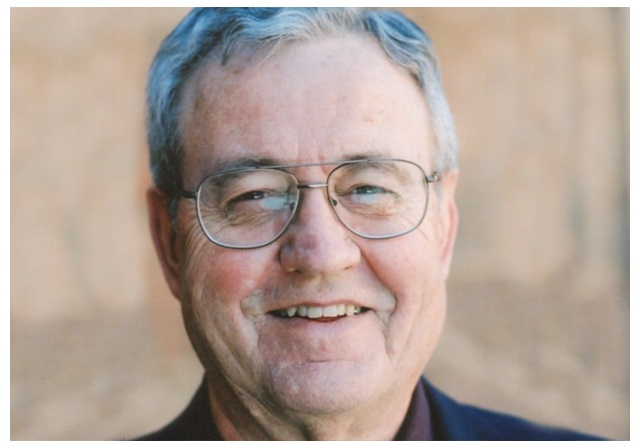The Quest for Both Conviction and Civility
We are witnessing more and more unsettling public conversations today than at any other time in recent history. We see it with politicians, political commentators, social media posts, conversations at work, in coffee shops—and even in the church. People are having a hard time talking to one another in an appropriate manner.
While one group actively states their opinions with gusto, another group, who is mostly quiet, says little or nothing at all.
So how do we as disciple makers engage in conversations?
To answer this question, my mind takes me to a summer night several years ago. I was attending an event for Christian leaders, and the evening was perfectly set for an engaging conversation with a small group of leaders after Dallas Willard had just made a presentation to a group of scholars and seminary students. I had been given the opportunity to join the conversation, too.
We were all relaxing after dinner out on the patio and the conversation was as pleasant and clear as the evening air. The late Willard was even at that time an intellectual giant of the faith and a philosophy professor at the University of Southern California, respected by many secular and Christian leaders.
This circumstance gave me a chance to ask Dallas a question, one that I had wanted to ask him for ten years—a question about the nature of saving faith.
How He Handled the Question
I worded the question in such a way that may have offended many people, but I couldn’t think of a different way to ask it. Dallas listened to me, then responded in a kind and gentle way. What was most helpful was how he treated me:
He restated the question to make sure that he understood it. Then he carefully, yet succinctly, described the different ways by which people have sought to answer my question and the nuances involved in the topic. He clarified the exact nature of my question to make sure that he fully understood the motivation for it, and answered the question calmly in a kind and factual manner. The conversation soon moved on to another topic.
Neither the question nor the answer impacted me as much as the demeanor and the approach that Willard demonstrated while answering me. It demonstrated a cluster of important elements that reflected his wisdom, love, critical thinking, and ability to nuance argumentation—and all of those things in a five-minute conversation.
My Conclusion of the Matter
Just after he died a few years ago, Willard’s daughter published a book that Willard had not quite finished at the time of his death. The title reflects his approach to my question that night: The Allure of Gentleness: Defending the Faith in the Manner of Jesus.[i]
In this book, Dallas Willard summarizes the approach disciple makers need to adopt on hard topics today: “The means of our communication needs to be gentle, because gentleness also characterizes the subject of our communication. What we are seeking to defend or explain is Jesus himself, who is a gentle, loving shepherd. If we are not gentle in how we present the good news, how will people encounter the gentle and loving Messiah we want to point to?”[ii]
This is the exact approach described in 1 Peter 3:15, “Always be prepared to give an answer to everyone who asks you to give the reason for the hope that you have. But do this with gentleness and respect.”
Richard J. Mouw calls this approach “convicted civility” and he describes it in his book, Uncommon Decency.[iii] This is the posture we want to strike when approaching these crucial conversations. We live in a time where we must learn when and how to communicate without eliciting extreme and polarized reactions as in the opening example.
We must strive to be patient, gentle, and yet truthful. This posture of convicted civility is not easy, but it is essential if we are to show a different path to our culture. Discipleship-first people are disciples of Jesus first, before we make disciples. The order is important. Disciples represent Jesus and so we take on the character traits of a man who was never defensive or mean spirited.
Like Jesus, we want to embody love, understanding, and compassion, while holding to our convictions. It made a big impact on me that summer night many years ago when Dallas Willard showed it to me. I hope that we can join together, as a people, and show that same kind of Christ-likeness in the hard conversations of our day.
As we engage in these conversations, we must seek to first be disciples who are like Christ and then, from that foundation, help others to join us as disciples. We want to model for others how to hold on to both conviction and civility. Then, in our spheres, if we are successful, maybe we can help change the tone of our discourses … and it will be a lot better for all of us.
NOTES:
[i] Dallas Willard, The Allure of Gentleness: Defending the Faith in the Manner of Jesus (San Francisco, California: Harper One, 2015).
[ii] Ibid., 4.
[iii] Richard J. Mouw, Uncommon Decency, second ed. (Downers Grove, IL: InterVarsity Press, 2010), 14.
Written by Bobby Harrington
Bobby Harrington is the Executive Director of Discipleship.org, a national platform, conference, and ministry that advocates for Jesus’ style of disciple making. He is the founding and lead pastor of Harpeth Christian Church (by the Harpeth River, just outside of Nashville, TN). He has a Doctor of Ministry degree in consulting and has spent years as a coach to church planters and senior pastors. He is the author of several books on discipleship, including DiscipleShift (with Jim Putman and Robert Coleman) and The Disciple Maker’s Handbook (with Josh Patrick).






Thank you for this article. I have been thinking a lot on how conversations can be had during this tumultuous context that we live in (North America). Almost every conversation I am involved in lately, there seemed to be hot-button topics that pit one party against another. The talk gets very heated and really leaves everyone uneasy, even among friends. As I reflect on what is said in this article, I wonder if we know or can give a definite example of what a gentle conversation on homosexuality, gun control, Trump, political preference, Christianity, would be like? How can we gain muscle memory if we don’t know where to start and do not have an opportunity to practice. Is the church giving safe space and teaching to work toward this method of discipleship. I am not discouraged; however, I would like to gain some proficiency in this matter.